Those looking to increase the power of their 2014-2016 Chevrolet Silverado/GMC Sierra pickup truck, courtesy of a roots-style supercharger, are in luck. Street Legal Performance (SLP) has just announced the SLP Supercharger System, which utilizes Eaton’s 1900 TVS supercharger for trucks equipped with GM’s 5.3-liter Ecotec3 L83 or 6.2-liter Ecotec3 L86 V8 engines.
Owners of the Silverado/Sierra with the 6.2-liter L86 V8 will see gains of 170 horsepower at 5,700 rpm and 130 pound-feet of torque at 4,100 rpm, which is 41 percent more horsepower and 28 percent more torque than factory specs, translating to 590 horsepower and 590 pound-feet of torque.
Trucks with the 5.3-liter L83 V8 will gain 165 ponies at 6,000 rpm and 167 pound-feet of twist at 3,200 rpm — a 46 percent increase in horsepower and a 44 percent increase in torque, translating to a total of 520 horsepower and 550 pound-feet of torque. Pretty potent, wouldn’t you say?
| Engine: | 5.3L L83 V-8 | 6.2L L86 V-8 |
|---|---|---|
| Stock horsepower: | 355 | 420 |
| SLP supercharged horsepower: | 520 | 590 |
| Stock torque: | 383 | 460 |
| SLP supercharged torque: | 550 | 590 |
Sure, one could probably make more power with a (more complex) turbocharger system, but the benefit of using a supercharger is having power on tap throughout the entire rpm range and not having to worry about turbo-lag. Not to mention the fact that these supercharger kits feature similar technology to that of the Cadillac CTS-V, Chevrolet Camaro ZL1, and Corvette Z06.
These roots-style superchargers feature twin four-lobe rotors twisted 160-degrees. SLP states that the benefits of such a design include “vastly cooler discharge temps than competitive twin screw designs, higher volumetric capacity, higher operating speeds, a smoother, more efficient flow of air into the engine, and improved noise and vibration characteristics.”
Pricing starts at roughly $7,000, so if you’ve got the dough and are looking for a way to give your Chevy or GMC pickup truck some more oomph, head on over to SLP’s site here.

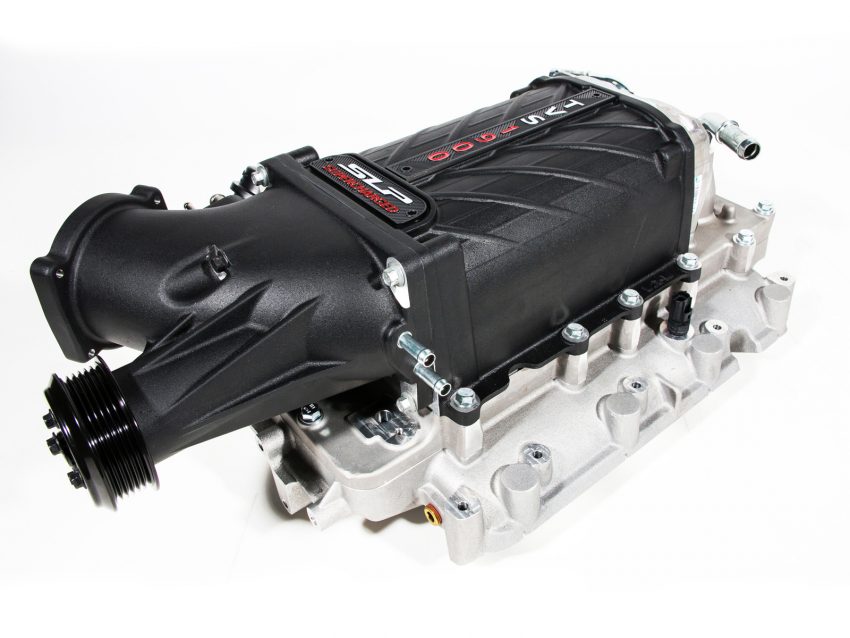

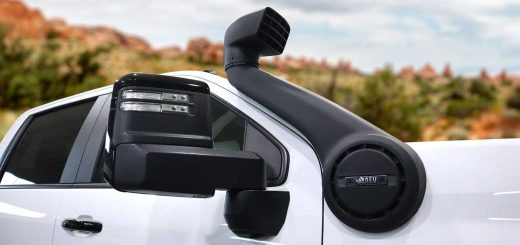
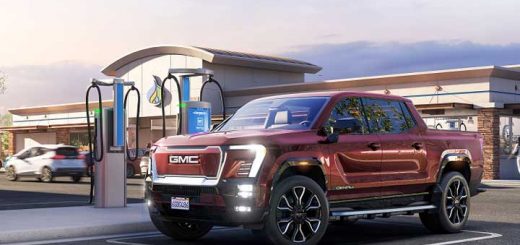
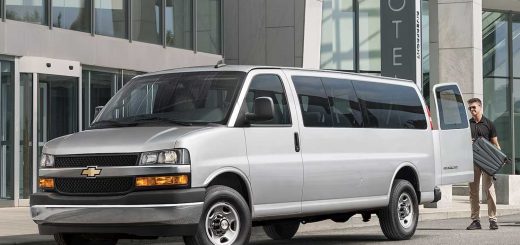







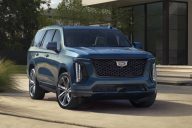
Comments
Would that system work on a 6.2L in a yukon denali and pass carb emission test?
If the engine compartment was designed the same way it should. However, with the application not being listed I’m going to assume some tweaks will need to be made.
Best answer would be to go their website and check but I can tell you that first and foremost you must have a 2014 or newer Ecotec3 V8. The second most important factor is the platform, which your Yukon, if 2014 and newer certainly should apply. The third is WHERE are you for emissions. Cali may be a problem but elsewhere should be good. To confirm, go their website or call them. You have honest questions so I’m sorry for not replying sooner.
Glad you mentioned turbo’s ’cause at $7000. you can do MUCH better with small TT’s for less $$$. Smaller turbo’s spool up much faster negating turbo lag and provide better MPG’s since they are not parasitic like any belt driven supercharger. Still worried about lag? Use a small shot of nitrous to spool faster when you really need it. Want even more power after boost? Hit it with the nitrous again. If you have half a clue and do the research, you can build a complete system by yourself and have it dyno tuned producing way more than 170 hp for so much less $$.
If it were really that cut and dry no one would ever buy superchargers.
You need a bit more than “half a clue” to install a twin-turbo system along with nitrous. Most folks don’t have the resources to do the fabrication needed – and when it’s all said and done I am not so sure that you will spend significantly less (without said resources). Granted, you will have a more powerful car. The parasitic loss is minimal and doesn’t eat up a ton of MPG, I doubt any real-world differences would be noticed in such an application (nor do I think anyone would give a hoot about such a thing if they’re doing this to their vehicle).
There’s also the tuning aspect. Resorting to a dyno-tune is the best option unless you can do it yourself. But having software that has been tailored to your specific application can sometimes be the better option, and from I can tell it looks like they will customize tunes for each individual customer.
My point is, there’s a reason companies can make money off of providing a one-stop shop to their customers, offering a product that essentially comes with instructions and nearly everything required for install.
Oh, BTW, do you really think paying $41. per horsepower for supercharging is ANY kind of value compared to a Turbo/Turbo’s’s?? Yeah, really, $41per HP X 170hp = $7000. Think about it. Better yet, do the research.
I’m sure the people buying the kit find value in it…
You’re basing it on the premise that someone is out to get the highest horsepower rating possible (and they aren’t getting very much more on a stock motor). Having more peak power doesn’t necessarily mean having the best performance. Beyond that, a higher hp build is going to require a lot more than just go fast parts, it raises the cost of the entire build by more than just the difference between the kits.
And if we’re comparing apples to apples, it would be bolt-on-ready-kit to bolt-on-ready-kit, and even then a TT or single T would be way more involved, not to mention much more expensive.
Well, it appears we are going to agree to disagree. A lot of what you say is opinionated being what you think/feel/believe and not fact based. There are plenty of articles out there regarding the parasitic loss I mentioned so I suggest you give them a read. Also a chassis dyno tune will ALWAYS give you the BEST tune for your SPECIFIC vehicle as it is based on your vehicle and however you have it setup through the TOTAL drivetrain, not just at the crank. The one thing where you are correct is this is for someone who has more $$ than one or more of the following. Skills, intelligence, and/or time.
“Maximizing your efficiency during cruising is the job of the supercharger’s integrated bypass valve. This vacuum operated system allows air to bypass the supercharger and the rotors to “free-spin” under light engine loads. During this situation the parasitic loss of the supercharger system is essentially negated taking less than one-third of a horsepower to turn the rotors. This bypass valve also allows your supercharged vehicle to maintain stock-like drivability and fuel economy – giving you a package that delivers power without compromise.”
I’m pretty sure if your opinion on the severity of parasitic loss was undebatable, GM wouldn’t be utilizing such technology. Nor would other manufacturers with supercharged vehicles… (Audi, Jaguar, to name a couple)
Different animal, but on the topic of MPGs – the LSJ Cobalt SS (supercharged) I previously owned was able to get 35MPG highway sometimes as high as 37.5. That’s higher than the EPA rating on the N/A 2.2 L61s, and it did better than the 07 LT that my mother currently drives.
Superchargers are used for instant throttle/hp response without the complexity. Without a nitrous kick, and it’s added complexity, turbo’s aren’t as responsive but ARE more efficient and better on the MPG’s versus superchargers. That is why you see the blower being used in only GM’s highest instant throttle required vehicles like the Z06, ZL1,CTS-V, etc.. while compromising the MPG’s. It’s a trade off. I’ll remind you that GM is going more the turbo route everyday and will probably be used with the C8 as ford has done with the new TT GT versus a 5.4l supercharged GT and getting 50 hp more, easily. No wonder why as tech to get TT’s to spool and produce boost faster is constantly improving like the TT’s in the ATS-V. Not to mention what the ferrari 488 does with a TT 4.8l producing 661hp which is more than a 6.2l supercharged Z06 at 650hp.
Which brings me to my next point. MORE manufacturers, including GM, are now and in the future going to turbo’s more than superchargers due to efficiency, emissions and better MPG. Do I need to list them all by make and model as there are sooo many? Yes it’s more complex than supercharging but the benefits are all there as PROVEN by all the manufactures doing it, including GM. Even GM’s biggest rival, ford, has gone all turbo’s across many models with great success and you can’t argue with that.
I wish you were right, but I don’t see GM replacing their ohv v engines with DOHC smaller displacement TT or single T. GM is shooting their selves in the foot. Ford has down a great job with it tt 3.5 powerplant. It’s available on their SUV/CUV, sedans and performance vehicles. GM will continue to get their asses kicked until the people at the top stop and listen to the customers.
What product does GM have that excites you? Nothing. They won’t even try and compete with the Focus, by producing an SS Cruze. GM could slap their 2.0L turbo engine in a Cruze and have a mean little performance car. Nope. So people are going to Ford and buying their 2.3L turbo Mustang or Focus.
Get a grip buddy. This article is about supercharging our 2014+ GM trucks. It’s not about “Supercharger vs Turbocharger”. This is exactly what I am looking for to help with the towing of all my Harleys. I can use it for a couple of years and when I trade in my truck, pull it off and sell it and get about 1/2 my money back. For towing a heavy trailer through the mountains, these roots superchargers are my best option.
“Get a grip buddy” Yeah…That’s exactly what I say to YOU. This is an over 2++ year old thread and NOW you troll???? Turbo’s are the way of the future, not parasitic superchargers, fool and YES even GM is going that route. Not even sure why I’m replying to you, turtle head. Please, crawl back under the rock you come from….
I was at Walmart buying milk and they had two kinds even though I only like chocolate. The nerve of Walmart for selling regular milk when I only buy the brown kind I told the lady buying white milk she was wrong but she bought it anyway…. Thats C4ce buying milk
Are you saying that because turbochargers are more efficient superchargers are inefficient? That seems to be your argument you also mention turbochargers have improved over the years in technology my question is do you not think the design of superchargers have improved. Answer: yes they have. Moral of the story turbos are good, superchargers are also good. But white milk is no good
Noble @$$, thread is now 3 years old and your replying now?? Keep drinking the koolaid. Lay off the milk as it might make you smarter, naaahhhh. Of course superchargers have improved but turbo’s are the way and the future. How many manufacturers still use superchargers vs turbo’s Einstein?? A supercharger will NEVER, yes NEVER, be as efficient as turbo’s and will ALWAYS be parasitic!! BTW, You’ve got NO milk in the fridge, imbecile….WTF, and where do you come from?? Never mind, just go BACK!
“it is actually quite efficient” – http://www.dragzine.com/news/lose-power-to-make-power-procharger-parasitic-loss-testing/
Funny how you pick a procharger rather than a roots or screw type blower similar to what is used by GM. Yet, NO supercharger is as efficient as a turbocharger.
http://beta.hotrod.com/articles/how-to-pick-the-right-adder-turbos-vs-centrifugal-roots-and-screw-superchargers/
C4ce- you really need medication. The thread is going on 4 years old. Nothing has more parasitic loss then your old ass inefficient C4 vette! Know it all. Your car isn’t even worth the cost of any supercharger or turbo system! You got tt setup on that C4? Pics lets see it moron. I am sure it’s paid off!
I am just a Joe blow non wrench turner. I have a GMC Sierra 5.3 L and had the dealer install a Borla cat back and a HP intake. I like the results. How and for what performance would I get from a SLP? Installation? Warranty restrictions? Thanks.